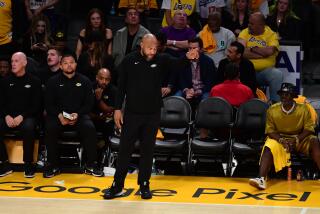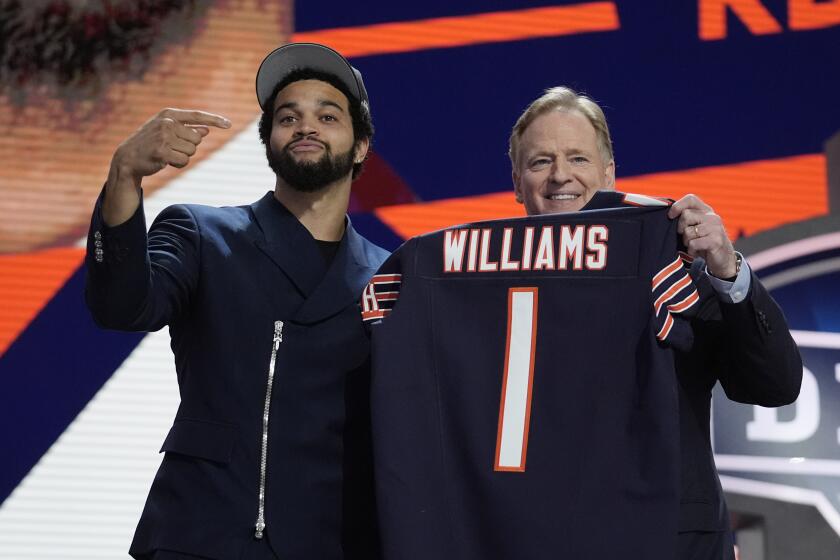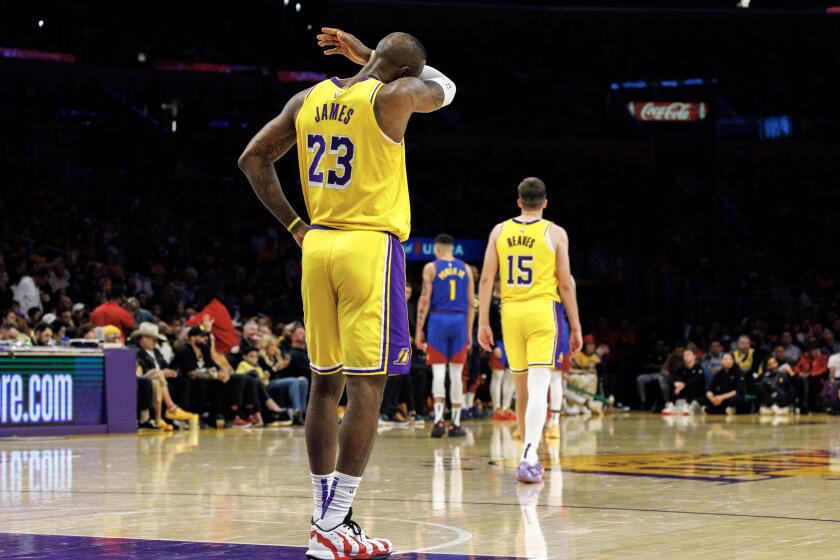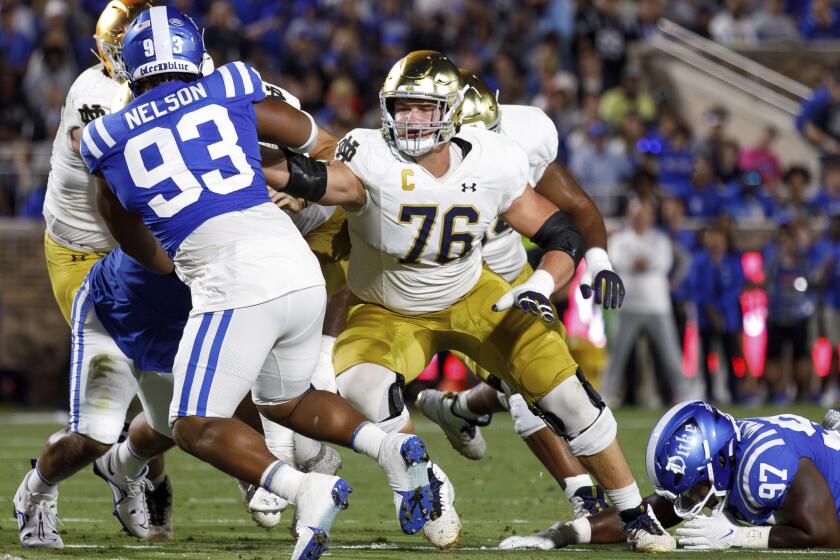Don’t count on Hall of Fame voters giving steroid-era players a pass any time soon
On Wednesday, the Hall of Fame voters had their annual say on baseball’s steroid era. This is the year the people of the United States enter the debate.
People of the United States, that is. Capital P, for plaintiff.
It’s a perjury doubleheader. On March 22, it’s the United States vs. Barry Lamar Bonds. On July 6, it’s the U.S. vs. William Roger Clemens.
Roberto Alomar and Bert Blyleven were elected to the Hall of Fame on Wednesday. No one else got within 75 votes of election, so perhaps no player gets elected next year, when the strongest first-time candidates include Tim Salmon, Bernie Williams and Vinny Castilla.
That brings us to 2013, when Bonds and Clemens hit the ballot, not to mention Sammy Sosa and Mike Piazza. By then, perhaps the Hall of Fame and its voters — the Baseball Writers Assn. of America — will come to some closure on the steroid era, and on how to judge its participants.
Don’t bet on it.
Bonds is the only seven-time most valuable player in baseball history, Clemens the only seven-time Cy Young Award winner.
If the perjury cases go to trial, each player could end up a convicted felon, which would not keep him off the Hall of Fame ballot.
Or each player could defeat the federal government, which could deploy its legal power and financial might without proving the player lied about never knowingly using steroids. That could appear to open the Cooperstown door to two of the game’s most decorated players, but even a verdict of not guilty would not sway a court of public opinion that already has decided Bonds and Clemens repeatedly used performance-enhancing drugs.
You had to read down, way down, in Wednesday’s election results to find the name of Rafael Palmeiro. He is one of four players with 500 home runs and 3,000 hits, along with first-ballot Hall of Fame members Hank Aaron, Willie Mays and Eddie Murray.
Aaron got 98% of the vote, Mays 95%, Murray 85%.
Palmeiro, the first star suspended for failing a drug test, got 11%, in his first year on the ballot.
Blyleven said he was not surprised at how poorly players linked to steroids — Palmeiro, Juan Gonzalez, Mark McGwire — had fared in the voting.
“Guys cheated,” Blyleven said on a conference call, speaking generally. “They cheated themselves and their teammates.”
If it were that easy, you could take all the steroid guys off the ballot if, that is, you could figure out who they were.
The Hall of Fame could tighten up that oh-so-general ballot guideline: “Voting shall be based upon the player’s record, playing ability, integrity, sportsmanship, character, and contributions to the team(s) on which the player played.”
Yet, the Hall of Fame has no plans to change a word among those criteria, no matter how starkly you might believe steroid use reflects on character.
“It’s an election, not an appointment,” Hall of Fame President Jeff Idelson said Wednesday. “The rules for election work, and work well.
“The character clause has been in there for a very long time. It’s in there as it relates to the game on the field. It isn’t to judge personal character away from the game. Obviously, character is subjective.”
The Hall of Fame took Pete Rose off the ballot, but he was banished from the sport for gambling on it. There was no gambling era, as far as we know.
There was a steroid era, but what would the standards be for removing a player from the Hall of Fame ballot? That a player tested positive? That he lied to Congress? That he admitted using steroids? That Jose Canseco said he did? That his home run totals ballooned, or that his head size did?
Idelson said the Hall of Fame’s board of directors has not asked him to draft new voting standards to reflect the steroid era.
“We feel the process works well,” he said. “We have great faith in the writers.
“We’re comfortable giving writers the authority to make value judgments.”
Ultimately, baseball gets the election process it deserves. Testing for steroids does not put an end to talking about steroids.
The residue of the steroid era will last at least as long as the era itself did, with Hall of Fame elections reviving the issue every year, for years to come. Manny Ramirez might still be on the ballot in 2030.
More to Read
Get our high school sports newsletter
Prep Rally is devoted to the SoCal high school sports experience, bringing you scores, stories and a behind-the-scenes look at what makes prep sports so popular.
You may occasionally receive promotional content from the Los Angeles Times.







